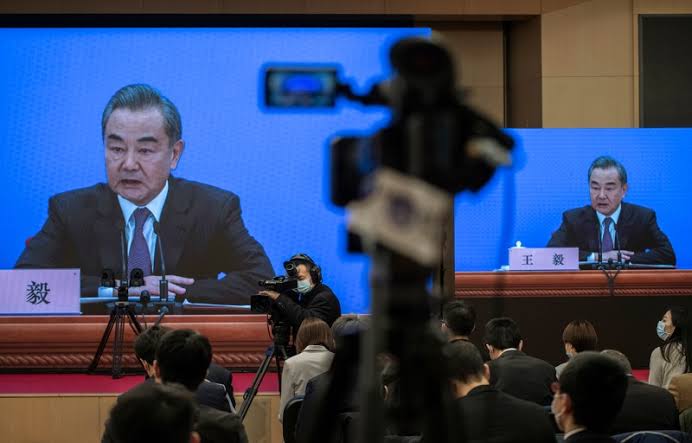Big Reshuffle in Chinese Foreign Ministry

There has been a big reshuffle in the Chinese Foreign Ministry. Late last month, Qin Gang, Chinese ambassador to Washington and a trusted aide of President Xi Jinping, was made the new foreign minister. It may probably help Beijing to stabilize its relationship with New Delhi and Washington.
A former spokespersons has also risen to prominent post. Lu Kang who was made a director at the ministry’s North America department is now China’s ambassador to Indonesia, while Geng Shuang another former spokesperson has been promoted to become China’s deputy permanent representative at the UN.
In an unusual move, one of China’s most prominent “wolf warrior” diplomats, whom Indians are quite familiar, the Chinese foreign ministry spokesman Zhao Lijian has been moved to an obscure department, according to the ministry’s website.
Boundary affairs is not one of the (foreign ministry’s) more popular departments. It could be because he had caught too much negative attention from Indians in the past three years since he had been favoring Pakistan, needed some time and space to cool off.
Zhao who gained prominence as one of China’s most outspoken “wolf warrior” diplomats was transferred to the Department of Boundary and Ocean Affairs on Monday as deputy head of the ministry.
Zhao had taken up the post of foreign ministry spokesperson in 2020, after making headlines with controversial tweets as an envoy to Pakistan, reported The Straits Times.
Zhao was known for his vociferous defence of the Communist-led country on social media platforms such as Twitter.
He built a large following on Twitter as well as on Chinese social media for his frequent and often combative posts, many targeted at India and US. In a controversial Twitter post in March 2020, Zhao wrote that the US military might have brought the coronavirus to the Chinese city of Wuhan.
He also sparked outrage in Canberra when he posted an illustration of an Australian soldier holding a bloody knife to a child’s throat, prompting condemnation by Australia’s prime minister.
Zhao, who often hosted the ministry’s daily media briefing, has 1.9 million Twitter followers. Zhao and the ministry did not immediately respond to a request for comment on his change in role.
His rise in influence came as Beijing spearheaded a more aggressive diplomatic turn under President Xi Jinping, China’s most powerful ruler in decades.



